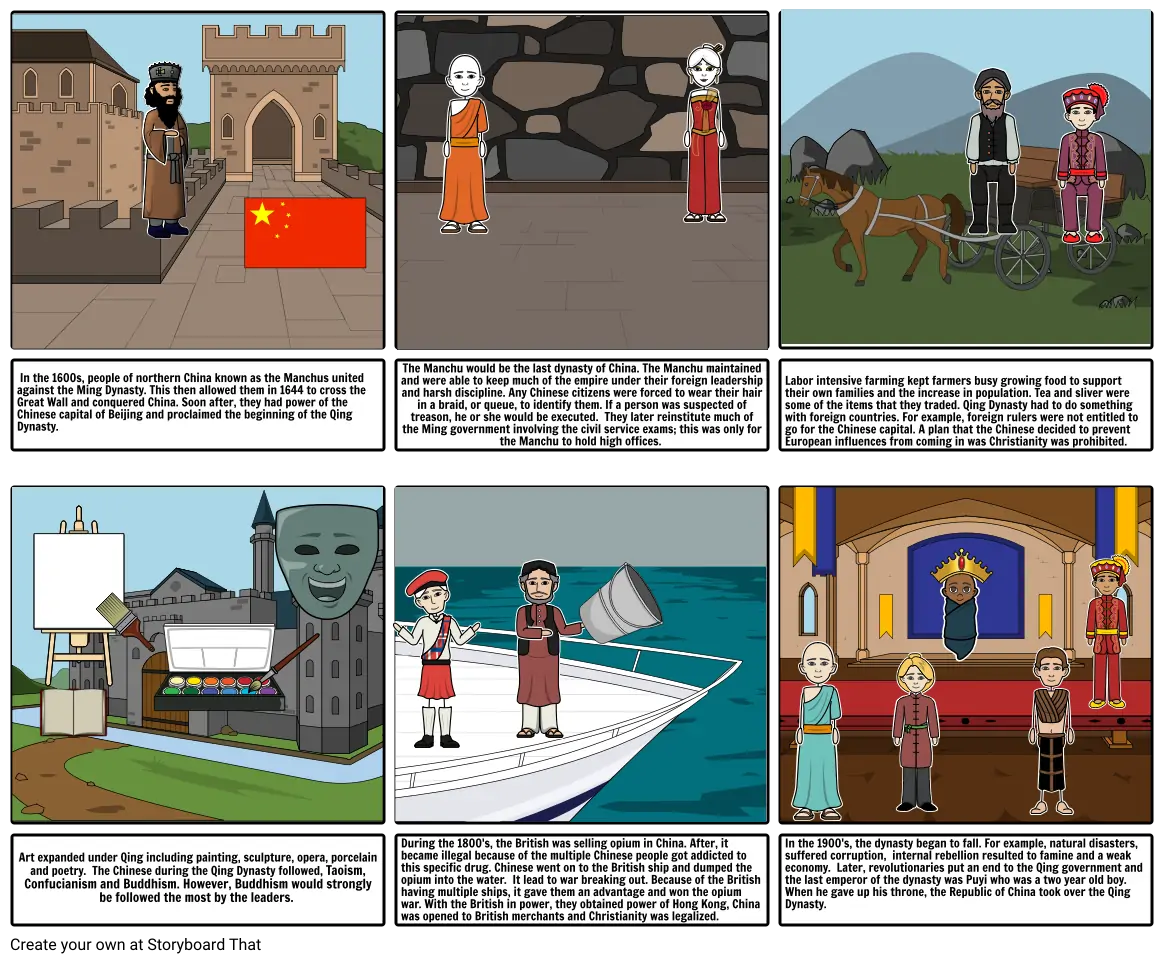Qing Dynasty-Jen LeConte

Storyboard Text
- In the 1600s, people of northern China known as the Manchus united against the Ming Dynasty. This then allowed them in 1644 to cross the Great Wall and conquered China. Soon after, they had power of the Chinese capital of Beijing and proclaimed the beginning of the Qing Dynasty.
- The Manchu would be the last dynasty of China. The Manchu maintained and were able to keep much of the empire under their foreign leadership and harsh discipline. Any Chinese citizens were forced to wear their hair in a braid, or queue, to identify them. If a person was suspected of treason, he or she would be executed. They later reinstitute much of the Ming government involving the civil service exams; this was only for the Manchu to hold high offices.
- Labor intensive farming kept farmers busy growing food to support their own families and the increase in population. Tea and sliver were some of the items that they traded. Qing Dynasty had to do something with foreign countries. For example, foreign rulers were not entitled to go for the Chinese capital. A plan that the Chinese decided to prevent European influences from coming in was Christianity was prohibited.
- Art expanded under Qing including painting, sculpture, opera, porcelain and poetry. The Chinese during the Qing Dynasty followed, Taoism, Confucianism and Buddhism. However, Buddhism would strongly be followed the most by the leaders.
- During the 1800's, the British was selling opium in China. After, it became illegal because of the multiple Chinese people got addicted to this specific drug. Chinese went on to the British ship and dumped the opium into the water. It lead to war breaking out. Because of the British having multiple ships, it gave them an advantage and won the opium war. With the British in power, they obtained power of Hong Kong, China was opened to British merchants and Christianity was legalized.
- In the 1900's, the dynasty began to fall. For example, natural disasters, suffered corruption, internal rebellion resulted to famine and a weak economy. Later, revolutionaries put an end to the Qing government and the last emperor of the dynasty was Puyi who was a two year old boy. When he gave up his throne, the Republic of China took over the Qing Dynasty.
Over 30 Million Storyboards Created
No Downloads, No Credit Card, and No Login Needed to Try!
